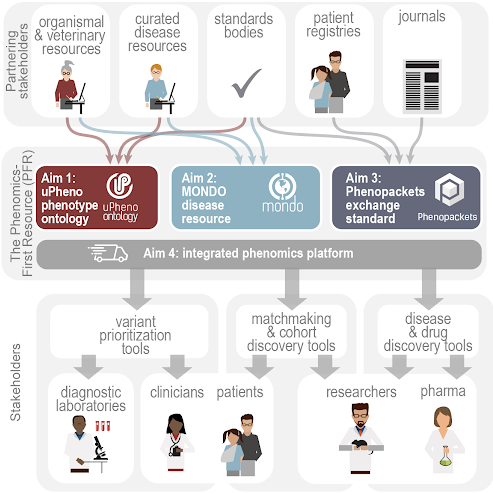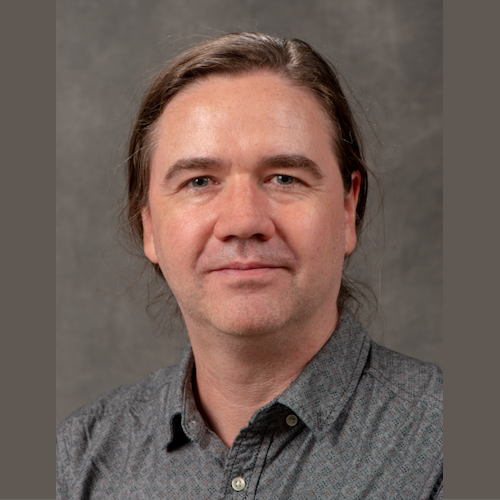 A new project co-led by Environmental Genomics and Systems Biology Division scientist Christopher Mungall has received a $10 million five-year grant from the National Institutes of Health to establish a Center of Excellence in Genomic Science (CEGS). An international, multi-institutional collaboration, the new center will develop tools to modernize how biomedical information about genetic conditions is captured, stored, and exchanged.
A new project co-led by Environmental Genomics and Systems Biology Division scientist Christopher Mungall has received a $10 million five-year grant from the National Institutes of Health to establish a Center of Excellence in Genomic Science (CEGS). An international, multi-institutional collaboration, the new center will develop tools to modernize how biomedical information about genetic conditions is captured, stored, and exchanged.
The nascent field of phenomics involves decoding how differences in our genomes (called variants) and our environments trigger differences in our physical characteristics (phenotypes). Accomplishing this requires information about genes, variants, and phenotypes to be represented in standardized and computer-friendly encodings that enable data from a wide range of sources to be combined in a unified way. The new funding will enable scientists and physicians at four institutions in the US and UK to develop those standards and software for working with them.

The Phenomics First Resource (PFR) will collect information from sources ranging from patient registries to journals. Existing standards including uPheno (a phenotype ontology), Mondo (a disease ontology), and Phenopackets (a standard for representing phenotypic data) will be used to consolidate and harmonize the data. The integrated phenomics platform will employ a range of existing and new methods to prioritize variants, discover cohorts, and identify new drug targets. The resulting knowledge will be helpful to diagnostic laboratories, clinicians and patients, biomedical researchers, and drug developers. (Credit: Phenomics First Resource)
Although the immediate focus in this project is on human and model organism data, Mungall noted, the cross-species framework they are developing will also be applicable to plants and microbes. The key technology that will be used in this project is ontologies: standardized ways to represent concepts and the relationships between them. The Gene Ontology, co-led by Mungall, is the accepted standard for describing the functions of gene products. The CEGS project will develop a similarly universal ontology for representing the phenotypes of disease across the tree of life.
The project, which launched earlier this month, will partner with organismal resources, standards bodies, patient registries, and scientific publications, and will serve communities including clinicians and patients, researchers, and diagnostic laboratories. The work will be led by Melissa Haendel at Oregon State University (OSU) and will involve collaborators from Berkeley Lab, Johns Hopkins University, The Jackson Laboratory for Genomic Medicine, Queen Mary University of London, and European Bioinformatics Institute.
For more information, see the OSU press release.




